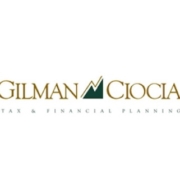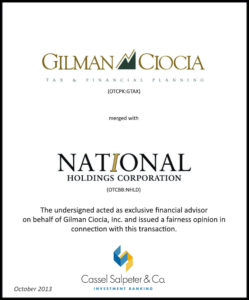To view original article click here.
By: James Cassel
May 13, 2013
At a cocktail party earlier this year, my friend’s daughter took the initiative to tell me about her new startup venture. Her story piqued my interest, so I did some homework and later decided to throw a little angel money into her San Francisco-based company, “FunLoop.”
Welcome to the world of “venture capital and angel investment” in South Florida.
Although we can credit the region for its progress in cultivating a venture capital (VC) community and nurturing startups, there’s no doubt the region continues to lag behind places like California, Massachusetts and New York City in terms of access to venture capital.
Think about it: Florida is the third-largest state in the country, and South Florida is the fifth-largest Designated Market Area (DMA), but we don’t have the third-largest or even the fifth-largest number of VC’s or VC-funded companies. The area has a huge gap in seed-stage capital, which happens to be the most important stage where business concepts are proved and growth strategies are developed. Although there are a significant number of angel investors in the region, they aren’t easily found unless you know what rocks to search under.
According to a recent MoneyTree Report published by PricewaterhouseCoopers and the National Venture Capital Association, the Sunshine State dropped from No. 13 to No. 18 for VC dollars invested in 2012. Investment in Florida companies dropped $141 million, or 42 percent, from 2011.
There’s no doubt that institutions like The Knight Foundation, The Launch Pad at the University of Miami, the FIU Pino Entrepreneurship Center, the Venture Hive, among others, are making tremendous strides in promoting entrepreneurship and innovation. They must continue moving forward with their fine work, which is critical to our region’s success and future. The VC’s (not to be confused with angel investors) are a growing but still small group that includes Antares Capital, Medina Capital, HIG Ventures and Florida Growth Fund, to name a few. Angel groups and networks include New World Angels and Venture Architects Investor Network.
But the undeniable truth remains that we will not be able to reach California, Massachusetts or New York City status until we have access to more capital — or the reputation for being a prime venue for this sort of entrepreneurial activity. South Florida still simply lacks the big-name, high-quality VC funds that are commonly found in other regions.
So, how do you access venture capital? Unfortunately, there’s no magic pill. Success here will require a lot of research, networking, relationship-building and luck.
There are plenty of angel investors out there, but unfortunately there isn’t one clearinghouse to find them. More often than not, entrepreneurs are finding their angels the way my friend’s daughter found me — by luck at a cocktail party or networking event.
A good way to begin: Identify and attend the right networking events and conferences that have the most fertile ground. Let your contacts know what you’re trying to do, and ask if they know any potential investors who may be interested. Some websites might be of help. Investment bankers can always help too, but few work with startup or very early stage companies. We have posted a list of venture capital resources at http://casselsalpeter.wpengine.com/knowledge/resources/
Reach out to the universities and determine what opportunities may exist for you. Florida International University, Florida Atlantic University, Nova Southeastern University and the University of Miami, for example, offer a broad range of opportunities, including everything from business plan competitions to access to funding.
Keep in mind that you may have to go find your money in other markets as well, which means you will have to travel and do lots of networking. Like it or not, you also may have to move to another city.
While we can’t ignore that VC-backed companies based in Florida, such as Citrix Systems, CBS Sportsline and Mako Surgical, have been acquired or gone public, we are still seeing many angel and VC’s investors requiring that entrepreneurs relocate to other areas before they will invest. Time and again, I’m seeing California VC’s saying: “You have to move to the valley.”
South Florida has come a very long way during the past decade. While the future looks bright, the promised land is still at least another decade away at the rate we’re going, and it will take a lot of hard work and joint effort to get there.
James S. Cassel is co-founder and chairman of Cassel Salpeter & Co., LLC, an investment-banking firm with headquarters in Miami that works with middle-market companies.www.casselsalpeter.com









